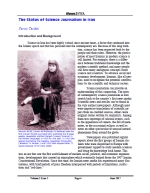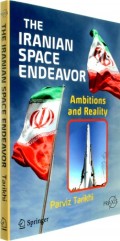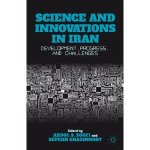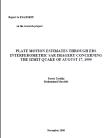Remote Sensing and Global Navigation; high concerns of COPUOS
Parviz Tarikhi
United Nations Committee of Peaceful Uses of Outer Space (UN-COPUOS) held its 50th meeting in Vienna, Austria on 6-15 June 2007. The meeting was special occasion since it was celebrating the 50th anniversary of the presence of man in space and reviewing its work in past half of century. Following the orbiting of first man-made satellite, Sputnik, in 1957 the vital importance of international cooperation in using space, and consensus all around the globe on this matter led to establishment of an ad-hoc committee directly under the UN General Assembly entitled “Committee on International Cooperation in Using Space” in 1958; 18 UN members founded this high Committee. It played key role during the “Space Race Era” in appealing nations for using outer space peacefully. The Committee changed its name to the “Committee of Peaceful Uses of Outer Space (COPUOS)” following the conclusion of Space Race. Both Scientific and Technical, and Legal Subcommittees are the specialized means for COPUOS in implementing its aims and functions.
Following the advent of Third United Nations Conference on the Exploration and Peaceful Uses of Outer Space (UNISPACE-III) in 1999, COPUOS has addressed variety of issues including Erath observation and global navigation and positioning, with practical results in promoting international cooperation in peaceful uses of outer space. Action teams established following UNISPACE-III have made in-depth analysis on certain areas of space applications that led to setting up of the International Committee on Global Navigation Satellite Systems (ICG) and to the UN Platform for Space-based Information for Disaster Management and Emergency Response (SPIDER); the later is currently in process of implementation within the Office for Outer Space Affairs (OOSA), Committee’s Secretariat.
For more than 40 years space technology has contributed to Earth observation. Synopsis and effectiveness of remote sensing technology and other space-based technologies including data for positioning/navigation and data relay by satellite are well known. Most COPUOS members are either operators of satellite observation systems or mane users of data from such systems or both. Many coordination mechanisms has been already carried out internationally to maximize the value of Earth observation and monitoring from space such as the program of the World Meteorological Organization (WMO), the Committee on Earth Observation Satellites (CEOS) and the Integrated Global Observing Strategy Partnership (IGOS). Formation of the international Group on Earth Observation (GEO) in 2003 to develop a Global Earth Observation System of Systems (GEOSS) extended the international coordination to non-space-based observation networks and drew attention to new disciplines such as biodiversity, energy and health. Global warming and its probable relationship to human activities needs to develop a comprehensive mitigation strategy to which COPOUS contributes by encouraging and facilitating the use of space systems for understanding and monitoring the changes affecting the Earth.
ICG was established as a result of the work of the Action Team on Global Navigation Satellite Systems. It is notable that ICG includes a large number of NGOs involved in setting standards on the use of satellite navigation signals and promoting new applications which is significant achievement of the UNISPACE III follow-up process. In 2007, COPUOS through its Scientific and Technical Subcommittee included as a regular agenda item recent developments in GNSS to consider issues related to ICG, the latest developments in the field of GNSS and its new applications.
International cooperation in promoting use of space-derived geospatial data for sustainable development, space remote sensing of Earth for environmental data acquisition, hazard monitoring, weather forecasting, climate change studies, ocean conditions monitoring, topographic and land-use surveys, agriculture, forestry and water resource management, etc. are matters of concern for COPUOS that works out them continuously.
Parviz Tarikhi is a space science and technology senior expert and manager, freelance journalist and technical writer based in Iran. He presently focuses on microwave remote sensing. In course of his cooperation with the United Nations Committee of Peaceful Uses of Outer Space (UN-COPUOS) since 2000, he worked as the Committee Bureau member in the capacity of Second Vice-Chairman and Rapporteur in 2004-06. He also co-chairs the Action Team number one of the Recommendations of UNISPACE-III “Develop a comprehensive worldwide environmental monitoring strategy”. Write to him either in care of ASM (Asian Surveying and Mapping Position Magazine) or directly at the e-mail address parviz_tarikhi@hotmail.com .
Note: Apart from any fair dealing for the purposes of research or private study, or criticism or review, this publication may only be reproduced, stored or transmitted in any form or by any means with the prior permission in writing of the author.
——————————————————————-
Dear visitor,
Thanks for visiting this page!
I would appreciate your comments and suggestions on the content and set-up.
Parviz Tarikhi


































































March 3, 2012 at 00:03
Your blog is fairly slow to display when using Safari.
January 11, 2012 at 12:20
Another Title…
I saw this really great post today….
December 24, 2011 at 16:10
Nice Focus….
I really like the direction you’ve decided to take this blog….
December 24, 2011 at 11:21
Trackback Priority…
Pretty component of content. I simply stumbled upon your site and in accession capital to say that I get in fact loved account your blog posts. Any way I will be subscribing on your feeds or even I success you access persistently quickly….
December 2, 2011 at 23:50
Links…
[…]%BLOGTITLE%[…]…
December 2, 2011 at 15:49
Stop the madness…
If I had a mean dog, I would send him to fetch your login details so you’d stop these posts….